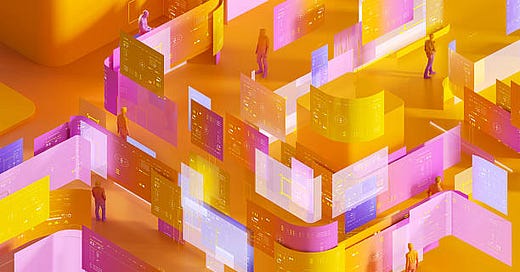The Copyright Minefield - Navigating AI Training Data and Intellectual Property Law
BONUS article: How recent litigation is reshaping the legal landscape for AI systems trained on copyrighted materials
The intersection of artificial intelligence training data and copyright law represents one of the most contentious and rapidly evolving areas in technology law, where billion-dollar AI companies face fundamental challenges to their business models through copyright infringement claims that could reshape how artificial intelligence systems are developed, trained, and commercialized.
Understanding this legal battlefield requires recognizing that AI training data practices developed in a regulatory vacuum that assumed broad fair use protections, but recent litigation demonstrates that copyright holders are successfully challenging these assumptions through sophisticated legal strategies that threaten the foundation of modern AI development.
The stakes extend far beyond individual lawsuits because the legal principles being established through current copyright litigation will determine whether AI companies can continue using vast amounts of copyrighted content for training purposes or must fundamentally restructure their data acquisition and model development processes. These decisions affect not only AI companies but also businesses that rely on AI services, content creators whose work may be used without permission, and the broader innovation ecosystem that depends on AI capabilities for competitive advantage.
Think of AI training data copyright issues as a massive collision between two different legal worlds that developed separately and now must find ways to coexist. Copyright law evolved to protect individual creators and encourage creative expression through exclusive rights that allow authors and artists to control how their work is used and monetized.
AI development emerged from a technology culture that assumed broad access to information for research and development purposes, leading to training practices that involve copying and analyzing millions of copyrighted works without explicit permission from rights holders.
The Foundation: Understanding AI Training Data Copyright Challenges
AI systems require enormous amounts of training data to develop their capabilities, and much of the most valuable training data consists of copyrighted materials including books, articles, images, music, and other creative works that provide the diverse examples that AI systems need to learn language patterns, visual recognition, and creative generation capabilities. The fundamental copyright question involves whether using copyrighted materials for AI training constitutes fair use under existing legal frameworks or represents massive copyright infringement that requires permission and compensation from rights holders.
Traditional copyright analysis focuses on the purpose and character of use, the nature of the copyrighted work, the amount used, and the effect on the market for the original work. AI training complicates this analysis because AI systems don't use copyrighted works in traditional ways but instead analyze patterns and relationships within the content to develop predictive models that can generate new outputs based on learned patterns.
The copying involved in AI training is comprehensive and systematic, involving exact reproduction of copyrighted works for computational analysis even when the ultimate purpose is transformative. This creates tension between the technical requirements of AI development and copyright principles that generally require permission for reproduction of protected works, regardless of the ultimate purpose.
Copyright holders argue that AI training represents commercial exploitation of their creative works without permission or compensation, potentially replacing human creativity with automated systems that can generate competing content based on unauthorized analysis of copyrighted materials. This perspective emphasizes that AI companies are building valuable commercial systems using copyrighted content without sharing the economic benefits with the original creators.
Keep reading with a 7-day free trial
Subscribe to Law + Koffee to keep reading this post and get 7 days of free access to the full post archives.





